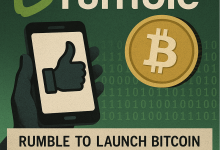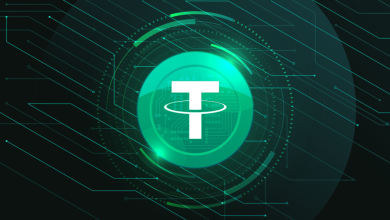Why Governments Holding BTC Could Change the Market Forever


, originally thought to be an underground currency used by tech enthusiasts and fraudsters, is finding its way into the national treasuries and reserve portfolios just like gold and foreign currencies. Though many governments, such as the United States and China, do already hold substantial amounts of BTC, mostly from . What is new in the trend is the degree to which countries, such as El Salvador (embracing it as a strategic asset) and the Czech National Bank (actively exploring or establishing formal reserves), are doing so. This shift from simple custody to strategic ownership by the government could reshape cryptocurrency markets.
Key Takeaways
- Official government holdings of BTC as a reserve asset have given it fresh legitimacy and diminished long-term regulatory risk, paving the way for broader institutional and public adoption.
- Increased scarcity, as a result of government acquisition followed by long-term holding, will reduce the available circulating supply of BTCs and could lead to significant long-term price appreciation.
- The integration of BTC into state reserves may eventually result in the gradual diversification away from traditional reserve currencies, such as the U.S. dollar, introducing an additional element to global financial power dynamics.
How Governments Got Into BTC
The majority of BTC held by governments has been acquired through law enforcement seizures. Over the past decade, authorities confiscated hundreds of thousands of BTC through criminal investigations. The United States built its stash through high-profile cases such as the 2013 Silk Road seizure (144,000 BTC) and the 2016 Bitfinex hack recovery (94,636 BTC). Specifically, to consolidate these seized funds, marking the first formal recognition of BTC as a national reserve asset.
Furthermore, China accumulated around 190,000 BTC from the 2019 PlusToken Ponzi scheme. The United Kingdom holds approximately 61,000 BTC from money laundering cases, while Ukraine accumulated over 46,000 BTC largely through wartime donations.
Some nations took proactive approaches. Bhutan has secretly mined BTC since 2019, utilizing hydroelectric power to accumulate between 12,000 and 13,000 BTC worth over $1 billion, which represents up to 40% of its GDP. El Salvador made history in 2021 by adopting BTC as legal tender,
The general practice of auctioning off these BTCs turns them from a seized liability to a carefully managed strategic state asset.
Effects on Market Dynamics
Unlike retail investors who panic and trade during downturns, governments typically purchase and hold assets in the long term. The most immediate and profound impact of large-scale government ownership is on market dynamics, including price, volatility, and scarcity.
1. Reduce supply
The total number of BTCs is fixed at 21 million coins. When a government like the United States or a sovereign wealth fund formally adopts a policy to hold BTC for the long term, those coins are essentially removed from the liquid, tradeable market.
With governments controlling approximately 2.3% of all BTC, further accumulation triggers supply shocks. Given consistent or increasing demand, a reduced supply is a major catalyst for the price of BTC to appreciate.
2. Boost institutional confidence and de-risking
Government approval, even implicit, acts as a powerful signal to the private sector.
- Regulatory clarity: When a central bank or a state government begins to hold BTC, it implies that the asset is no longer considered a purely risky, unregulated digital token. It accelerates the pressure for clear, stable regulatory frameworks.
- De-risking the asset: This official acceptance de-risks BTC in the eyes of traditional institutions (banks, pension funds, and insurance companies). The belief that “BTC might be banned” fades, unlocking immense pools of institutional capital that were previously hesitant to enter the market.
Geopolitical and Monetary Implications
The long-term implications of governments holding BTC extend far beyond the cryptocurrency market itself, affecting global financial stability and power structures.
The U.S. dollar has been the undisputed global reserve currency for decades, affording the U.S. financial leverage. As a decentralized, politically neutral, and censorship-resistant asset, BTC offers nations an alternative reserve currency.
- Allows diversification: Governments of countries with less stable fiat currencies, or those looking to reduce their dependence on the US dollar, are increasingly considering BTC as a hedge against currency depreciation and inflation.
- Serves as the new gold standard: The more countries that allocate even a small percentage of their reserves to BTC, the more it will begin to compete with gold and fiat currencies as a reliable store of value that is accessible anywhere in the world. This adoption could sluggishly erode the dominance of traditional fiat reserves.
Risks and Challenges
Government involvement raises serious concerns. BTC has experienced multiple drawdowns of 50–70%. How will governments handle such volatility? A strategic reserve losing half its value could face intense political pressure to liquidate, potentially causing market crashes.
- Opportunity costs: The money allocated to BTC could be used to fund infrastructure, education, or healthcare. Critics argue that diverting resources to a speculative asset represents questionable prioritization.
- Conflicts of interest: For instance, U.S. President Trump and his family reportedly have billions in crypto wealth. Ethical concerns arise when government policy directly impacts officials’ personal holdings.
- Market manipulation: This increases if governments become major holders. They could coordinate to influence prices for geopolitical purposes, contradicting BTC’s vision as a decentralized form of money.
- Legal and political challenges remain: Most economists disagree that borrowing money for a strategic crypto reserve would benefit the U.S. economy. This unanimous skepticism suggests significant opposition within traditional financial circles.
Bottom Line
The government’s adoption of BTC represents a permanent structural shift in the digital asset market. It moves BTC from a speculative novelty to a geopolitical commodity and an officially recognized reserve asset. This institutional embrace reduces regulatory uncertainty and introduces a major factor for long-term supply contraction. The shift validates BTC’s role in the global financial system and sets the stage for its increasing importance in the decades to come.






